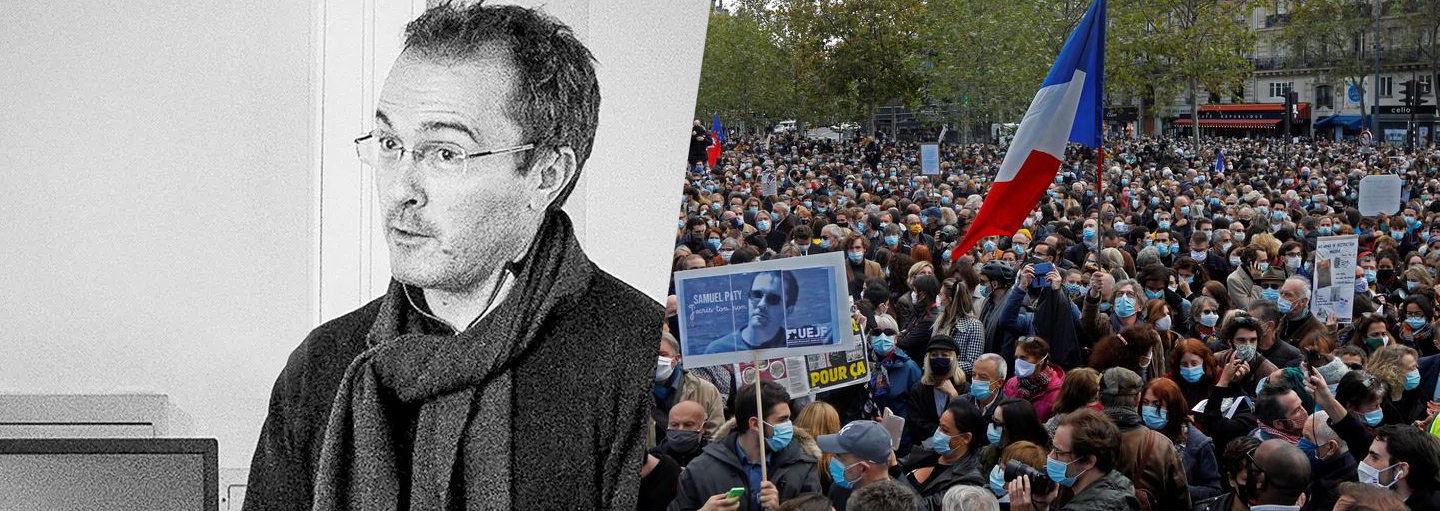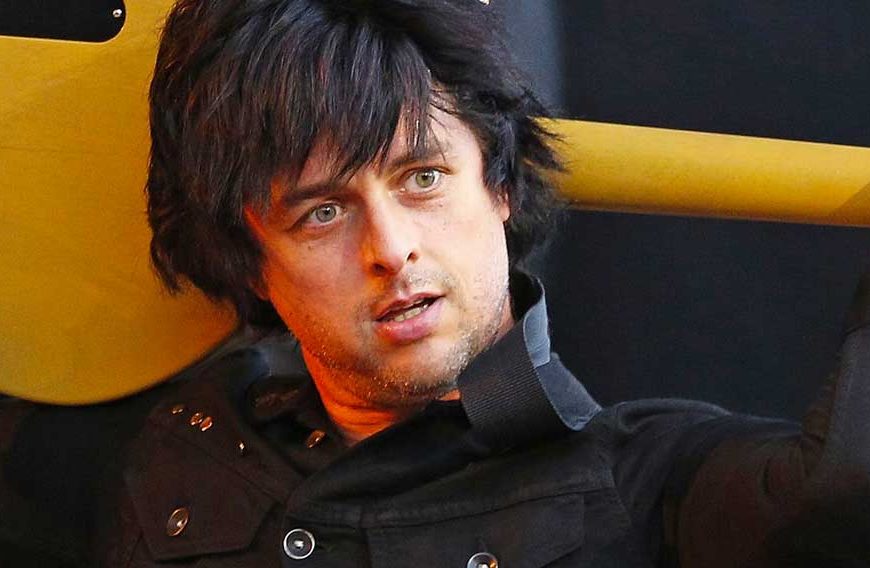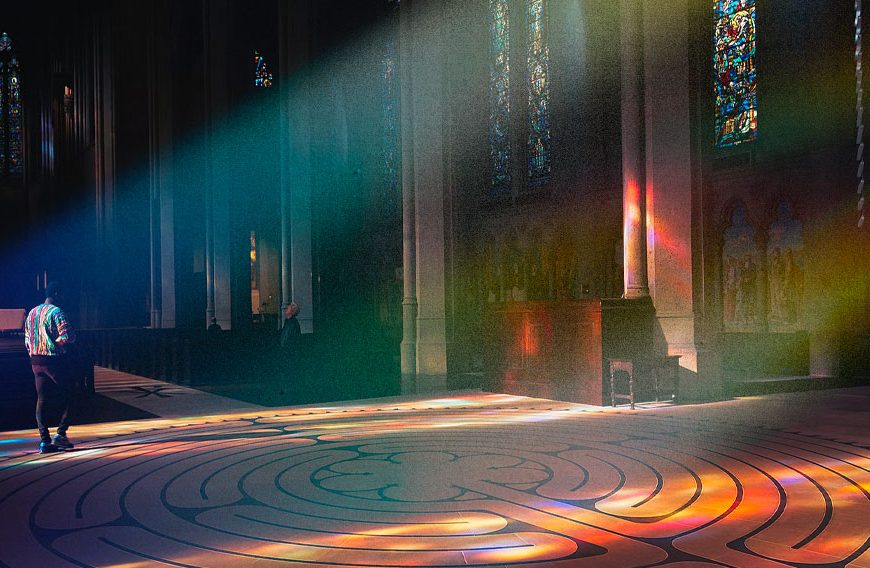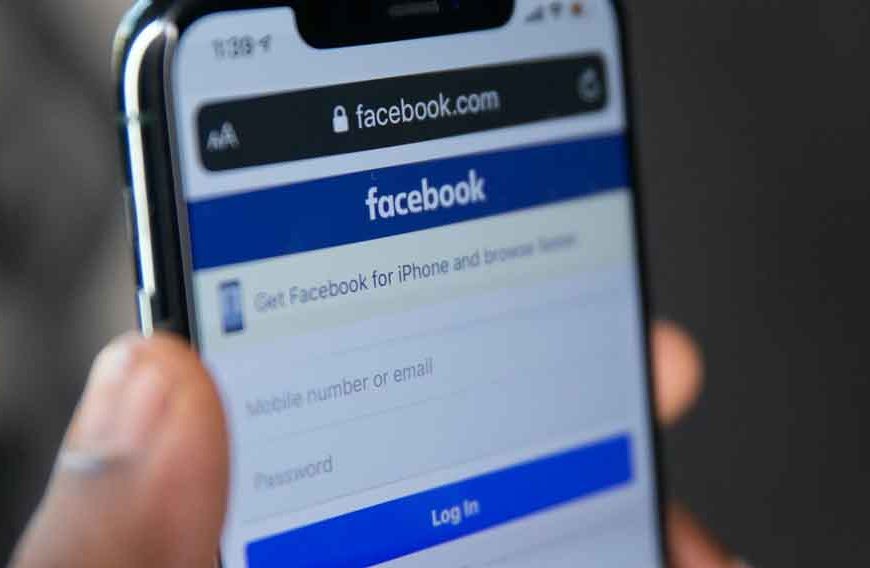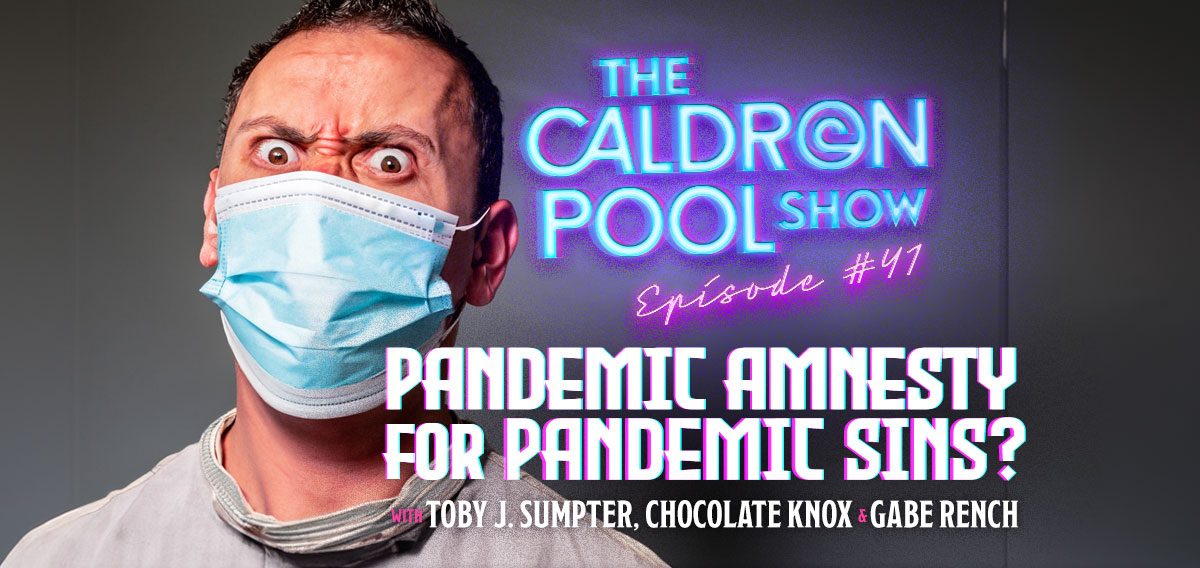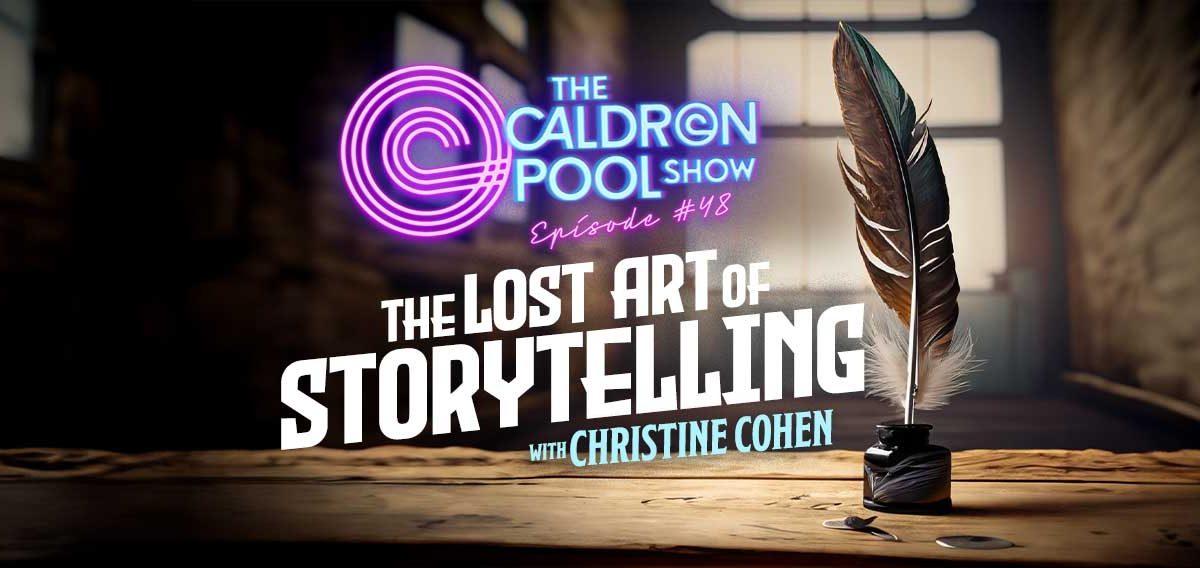France was left reeling last week after a middle school teacher was beheaded on a Paris street in broad daylight. The teacher was 47-year-old Samuel Paty; his attacker, a Muslim-Chechen refugee with French residency. The attack came after Paty had shown cartoons to his students depicting the prophet Muhammad during a class on freedom of expression.
Tensions have lingered in secular France since the infamous Charlie Hebdo shooting of 2015. A satirical magazine, Charlie Hebdo had long poked fun at organised religion. When Islamist terrorists stormed their office complex half a decade ago, they shot dead 12 staffers and injured 11 more, enraged over cartoons published by the magazine that had depicted Islam’s prophet.
In fact, it was reportedly the Charlie Hebdo event and cartoons that Samuel Paty had discussed with his class just before his murder last week. The BBC reports that Paty had invited Muslim students to leave the room before he showed the images if they felt they could be offended.
The people of responded to the attack by holding rallies in many cities. In a gathering in Paris, crowds observed a minute’s silence and sang the French national anthem.
When speaking with reporters, French President Emmanuel Macron described the murder as an “attack [on] the republic and its values’, stating that “one of our fellow citizens was assassinated today because he was teaching… pupils about freedom of expression.”
But not all reactions were equally measured. Sadly, some prominent voices have spoken out in defence of Paty’s attacker who was later shot dead by French police.
An editor of a Muslim news outlet in Britain, Roshan Salih, called Charlie Hebdo a “racist, Islamophobic rag” and demanded that it be “shut down immediately”.
Likewise, academic Dana Nawzar Jaf from the University of Durham condemned the police, calling their response a “brutal senseless murder of a Muslim suspect.” He called on President Macron to “explain to the public what was the need for the use of the disproportionate force against someone suspected of knife crime”.
British columnist Rakib Ehsan penned a timely rebuttal to this madness:
To reframe the police’s response to this gruesome Islamist terror attack as an example of anti-Muslim police brutality is an especially egregious form of victimhood politics.
Those who struggle to condemn the beheading of a schoolteacher, or feel that he ‘had it coming’ for showing pictures of the Prophet Muhammad, ought to consider whether liberal Western Europe is the right place for them.
Even the New York Times was called out by observers when it opted for slanted framing in its report on the event. “French Police Fatally Shoot Man Who Beheaded Teacher on the Street,” read the headline, obviously tapping into anti-police sentiment that has brewed in the U.S. through 2020.
Not only did the New York Times choose to centre the shooting by the police over the act of the murderer; it also provided a misleading sub headline—the first sentence of which read, “The victim was immediately depicted as a martyr to freedom of expression.” Depicted? One could have been forgiven for thinking that Samuel Paty indeed was a martyr to freedom of expression. France is a secular republic, after all.
It seems the message eventually got through to the appropriate editor. The title was stealth-edited so that it now reads, “Man Beheads Teacher on the Street in France and Is Killed by Police.”
Perhaps we can forgive the New York Times on this occasion. But there are some striking parallels between the more overt defence of the Muslim attacker and the “cancel culture” now rife in the Anglosphere.
To be sure, the former defended heinous violence, while the latter is content with bullying, ostracism and career ruination. But both wield grievance as a weapon; both silence dissenting opinions; both imply that the victim is to blame; and both have little interest in people of different persuasions living side-by-side in tolerant societies.
I am hardly implying that woke censorship will necessarily lead to fanatical violence. But let’s be honest: there’s an eerie family resemblance between these two illiberal ideologies. If the prophets of woke looked in the mirror, perhaps they would see it and cancel cancel culture.


